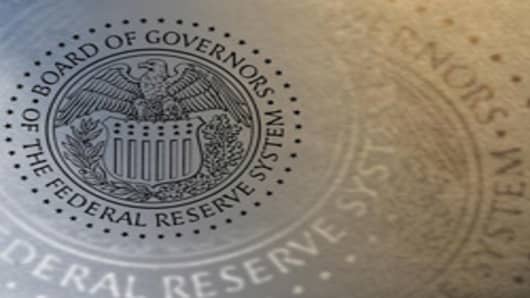The U.S. recession is likely to drag on for several more months before a modest recovery takes hold and slowly gains legs next year, a top Federal Reserve policy-maker said Tuesday.
"As we get into the middle of 2010 and beyond, I would expect to see a resumption of healthy growth," Gary Stern, President of the Minneapolis Fed, said in a speech to local business people in Willmar, Minnesota.
Stern credited the U.S. central bank's string of aggressive new lending programs with helping to inject life into credit markets, and also urged a rethink of the Fed's reluctance to attack perceived "asset bubbles" while they are still forming.
"We have acted forcefully and in a sustained way. I'm confident those actions will bear fruit," Stern said, adding that parallels often drawn between the current U.S. economy and Japan's "lost decade" of the 1990s are overblown.
Stern, the Fed's longest-serving regional president, is not a voting member of the Fed's policy-setting Federal Open Market Committee in 2009. He has said he will retire this summer, once a replacement is found.
With no further appearances on the calendar so far, Tuesday's event might have been one of his last Fed speeches.
Assessing the economic outlook, Stern said that financial conditions are not only improving, but that the improvement is gradually becoming more broadly based.
Consumer spending seems to be stabilizing after its plunge in the second half of 2008, and inventories of unsold and unoccupied homes are being worked off, he said.
Stern defended the billions of dollars spent to prop up major banks, noting that the financial system is unique in the speed with which problems can metastasize, dragging down the economy with it.
Inflation Will Not Be The Problem
Consistent with his recent speeches, Stern downplayed the risk of either deflation from the current recession or inflation further down the road as a result of the huge blowup in the Fed's balance sheet.
"To date, there is scant evidence of deflation in so-called core measures of inflation," he said.
"If economic growth resumes in the United States as I expect, the threat of deflation should diminish commensurately." On Friday, the U.S. Labor Department said core prices, which exclude food and energy, rose by a higher than expected 0.3 percent in April, and for the year were up 1.9 percent.
Even though the Fed must be sensitive to inflation and reverse policy as soon as appropriate, it has "ample time" to withdraw excess liquidity from the economy, Stern contended.
Taking questions from the audience, Stern said that the commitment of the Fed and other global central banks to low and stable inflation would help keep prices down over time.
"I don't think that inflation is going to turn out to be the problem going forward," he said.
Rethink on Asset Bubbles?
Stern said that a lesson from the current financial turmoil and deep, lengthy recession, which was triggered partly by a slump in housing values, is that the Fed may need to reconsider its attitude to attacking perceived asset bubbles.
The bank has typically taken a hands-off approach to "irrational exuberance" in various markets, opting instead to mop up once an asset bubble has exploded.
"It has proven exceedingly difficult and costly to deal with the aftermath of such excesses," Stern said.
"Identification of excesses in asset prices, although challenging, does not appear to be beyond the realm of possibility," he said, echoing thoughts expressed in a recent speech by San Francisco Fed President Janet Yellen.
A key to changing the approach would be to have the public buy in to a more radical policy approach, Stern said, adding: "Such actions are likely to require raising interest rates earlier and probably more than otherwise would be the case ... Before taking action, policymakers need to weigh these elements carefully."


